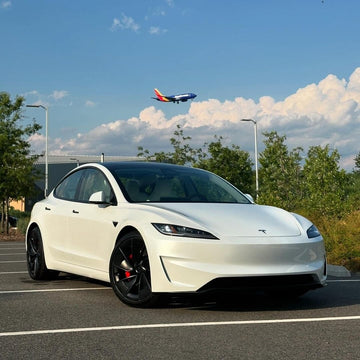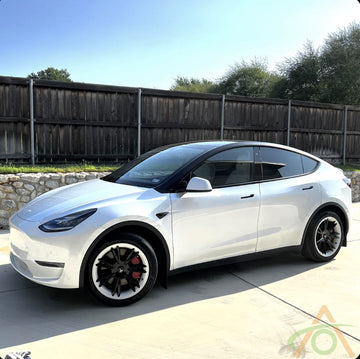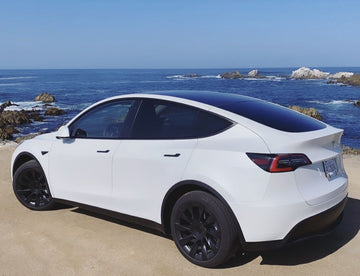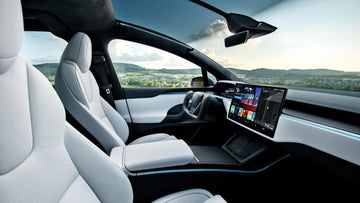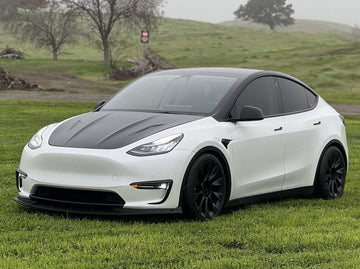Tesla reported its worst quarterly revenue decline in more than a decade, but the good news is that Elon Musk is the man who never stops building the dream, and right now that dream is betting on automation technology, including self-driving technology with humanoid robots. During the earnings meeting Elon Musk said Tesla is in a transition period and called on investors to ignore Tesla's electric car sales numbers, but the reality is that self-driving cabs and robots haven't yet converged, and the biggest problem right now is the regulatory impediments.
Tesla's sales are terrible, with sales down 13% in the first half of the year, no affordable EVs will be introduced this year, and with the impending elimination of a $7,500 tax credit for EV buyers in the U.S., Musk acknowledged that the company could be in for a few tough quarters. Foreign media analysts say Tesla's problems are similar to those of traditional automakers, except that the latter typically have much smaller market capitalizations. In addition competition from Chinese rivals is fierce, and demand for electric cars in major markets is weakening.
Tesla shares are down 20% year to date. (Source: Google Finance)
Musk told investors that Tesla's future doesn't depend on selling electric cars. Electric cars are just one part of Musk's vision for the future, and there's more to come, such as the recently opened Tesla Diner on Santa Monica Boulevard in Los Angeles, which is really a highway rest stop concept for the electric car world, but filled with futuristic tech and entertainment, with 80 charging spaces, humanoid robots and automation.
Analysts believe that self-driving cabs and self-driving technology are currently at the heart of maintaining Tesla's market capitalization of about $1 trillion. Musk said that self-driving cabs were launched in Austin, Texas, last month, and are planned to be rolled out in a number of states, such as California, Nevada, Arizona, and Florida, and are currently going through the regulatory licensing process. The business is expected to cover half of the U.S. by the end of this year of the U.S. population by the end of this year, with a large-scale rollout by the end of next year.
Regulatory impediments are the biggest factor
But it's not that easy, and it's mostly stuck on regulatory hurdles. According to foreign media reports, the San Francisco Bay Area is the primary testing area, but Tesla needs a series of permits from the California Department of Motor Vehicles (DMV) and the California Public Utilities Commission (CPUC) to test and deploy self-driving cars in the state, and Tesla has only received one of these permits so far. There has been little movement in other states except for a more definitive timeline in Arizona, and Musk did not reveal progress in Austin, Texas, at the conference.
The market believes Musk's claim that a self-driving cab service to cover half of the U.S. population will be “contingent on regulatory approval.” Morgan Stanley expects Tesla's sales to fall 14 percent this year, and said it could take years to profit from the renewed business.
Tesla Diner supports futuristic dreams
But the market still hasn't completely given up on Tesla, mainly because he still has the dream, as evidenced by the Tesla Diner craze, which has become like a cult-like presence in the eyes of tech fans. The Los Angeles store opened 6 hours revenue reached $47,000, 30% higher than the neighboring McDonald's, Musk has confirmed that the second branch will be set up in Texas SpaceX headquarters, and consider the promotion of the major cities around the world, and even some analysts believe that the restaurant will become a major source of revenue for Tesla.
Musk continues to create a sci-fi future that remains fascinating. According to Bloomberg BI data, nearly 45% of analysts focusing on Tesla maintain a “buy” rating, 31% of analysts give a ‘neutral’ or “hold” rating. Slightly less than 25% of analysts gave a “sell” rating. UBS U.S. auto analysts believe that the stock market is always a battle between potential and status quo. The bulls will continue to focus on valuations, look for evidence of AI progress and dream big.


